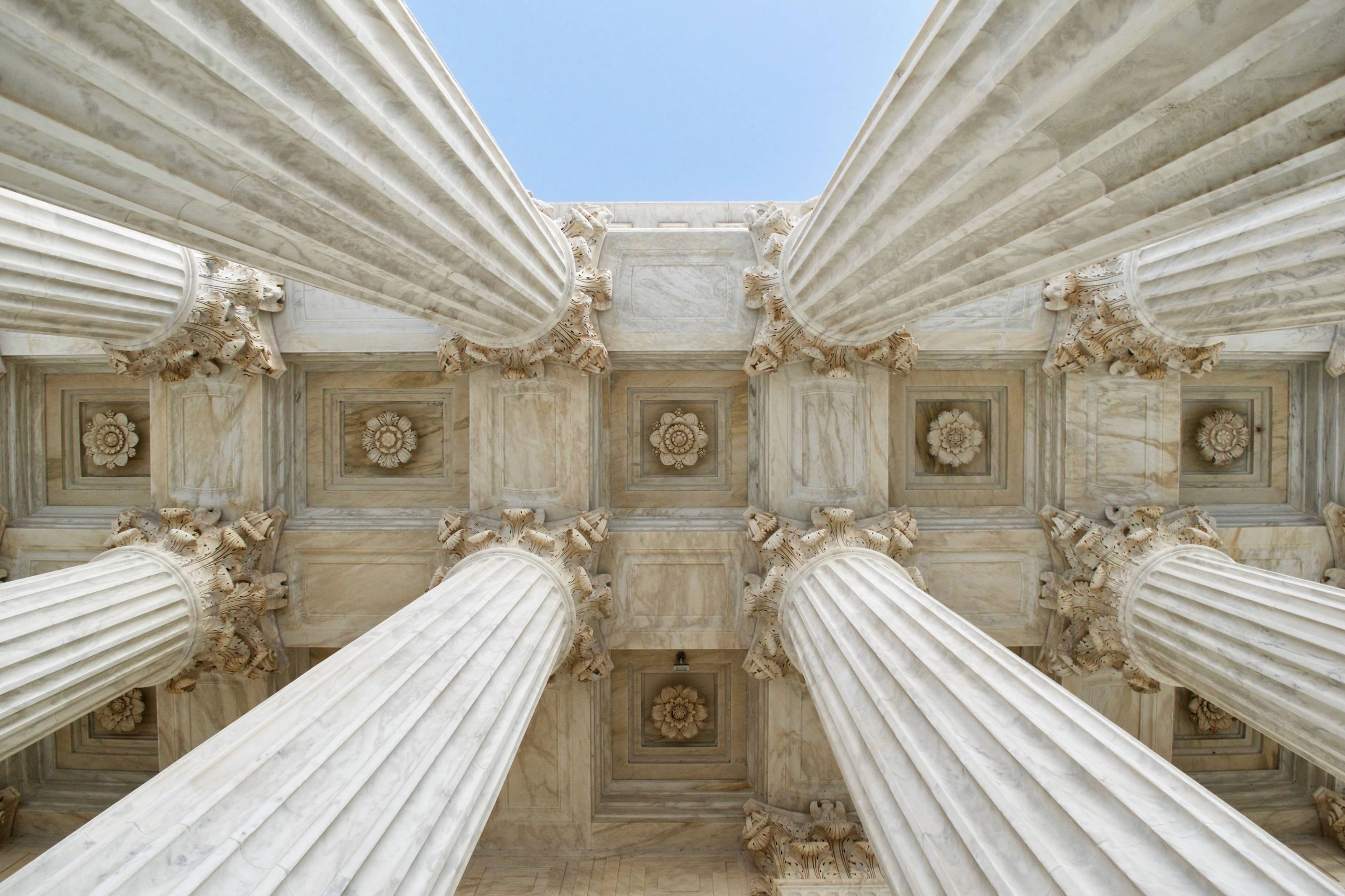Jones Research Lab
Dr. Angela Jones' lab has a number of active research projects currently in progress. Please read below to learn more.
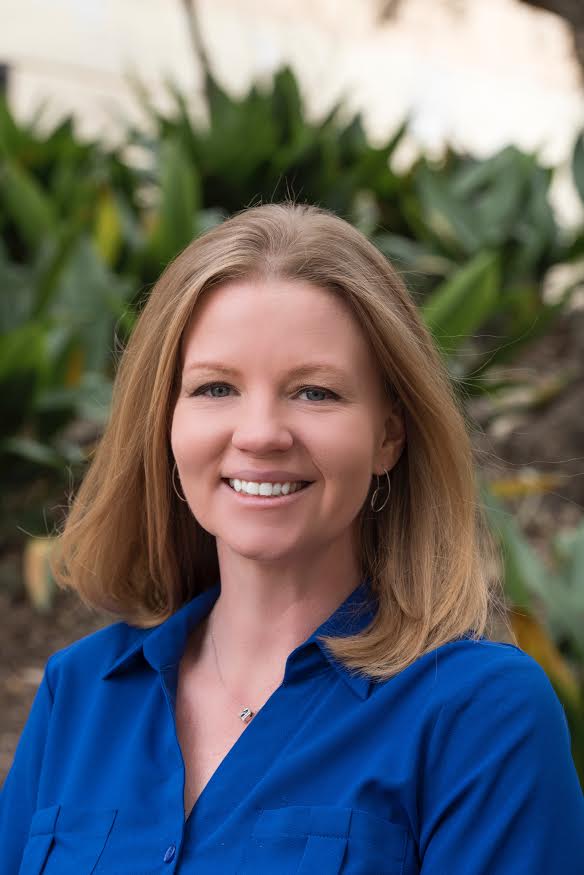
Dr. Angela Jones earned a Ph.D. in Psychology from the Graduate Center, City University of New York and is currently an Associate Professor in the School of Criminal Justice and Criminology at Texas State University. Her research interests lie at the intersection of psychology and the legal system. She applies expertise in experimental and survey methodology to design studies assessing public perceptions of procedural justice concerning police and courts, as well as evaluations of unreliable evidence that could lead to wrongful convictions. She also evaluates methods to improve juror decision-making, such as instructions, expert testimony, and implicit bias training. Her research has been published in interdisciplinary journals such as Criminal Justice and Behavior, Journal of Experimental Criminology, and Psychology, Crime & Law.
Procedural Justice
The psychology of justice has focused largely on perceptions of the fairness of procedures, called procedural justice. Procedurally just treatment matters to people because this treatment conveys information about their social identity. Fair treatment by authorities communicates a person’s social standing within the community, which promotes a sense of belonging, security, and self-worth. Identification with the community and its leaders fosters shared values and the obligation to obey.
Within the context of policing, much of the literature examines procedural justice perceptions from a first-person perspective; that is, those with direct experience interacting with police (or those participating in hypothetical scenarios). However, people’s attitudes and their behaviors can be powerfully influenced by vicarious exposure to police interactions. Moreover, criminal justice issues are shaped largely by media accounts which rely heavily on police sources. Notably, more Americans are learning about police interactions from social media, particularly smartphone videos filmed by civilians, who are often bystanders in police-civilian interactions.
While most procedural justice studies focus on outcomes of procedurally just policing such as legitimacy, compliance, and cooperation, questions remain about the antecedents of public perceptions of police procedural justice. We are conducting a variety of studies testing the antecedents of justice perceptions, from multiple perspectives, and in different types of interactions with police (e.g., traffic stops, interactions with persons in behavioral crisis). With funding from the National Institute of Justice, we are also examining how changes in interviewing skills among front-line officers may improve public perceptions of police.
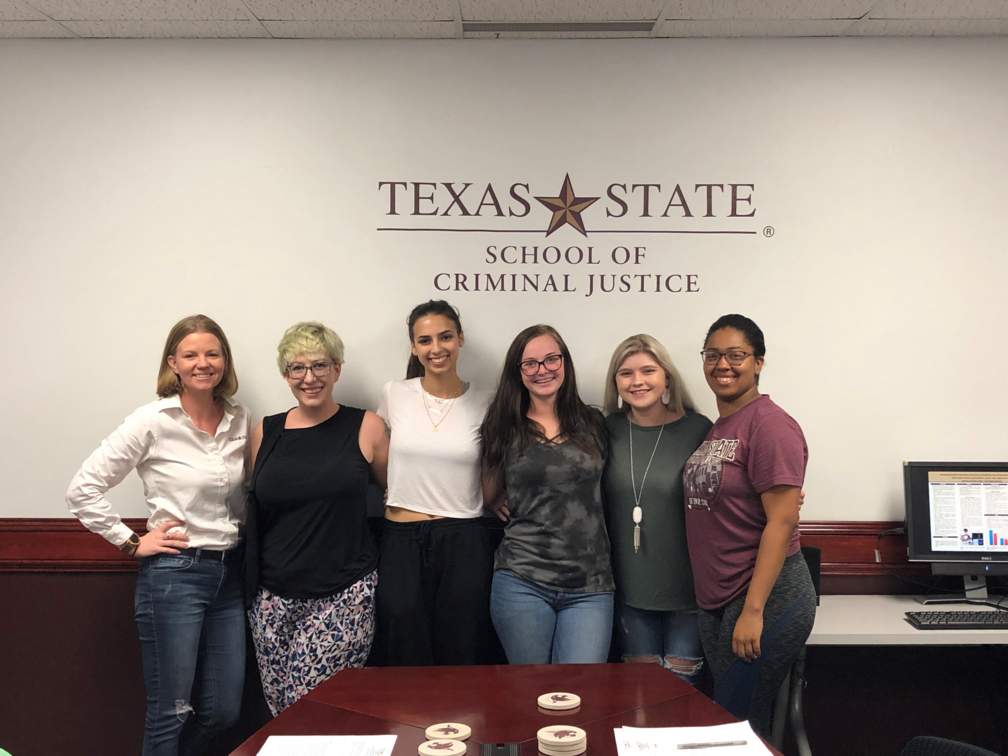
Spring 2019 Lab Members
From left to right, Dr. Jones, Ashley Blinkhorn (masters student), Jewelia Tapp (undergraduate), Courtney Meyers (undergraduate), Alexis Hawley (masters student), and D’Mornaquah Fontenot (undergraduate)
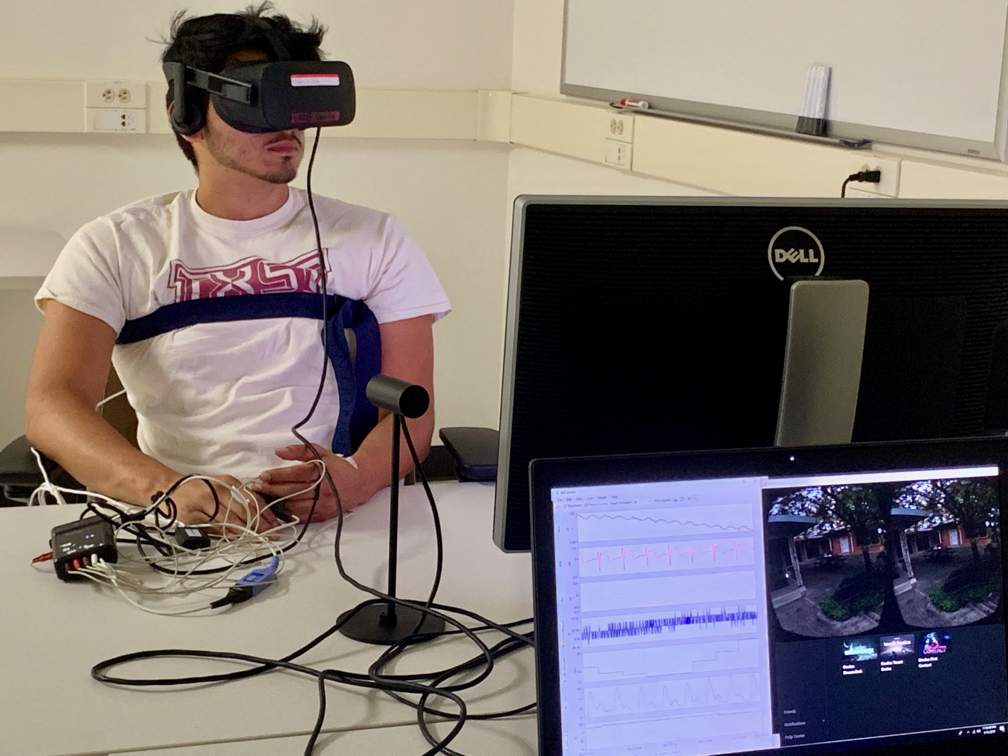
Immersive Environments
Participant wearing head-mounted display to view 360 crime
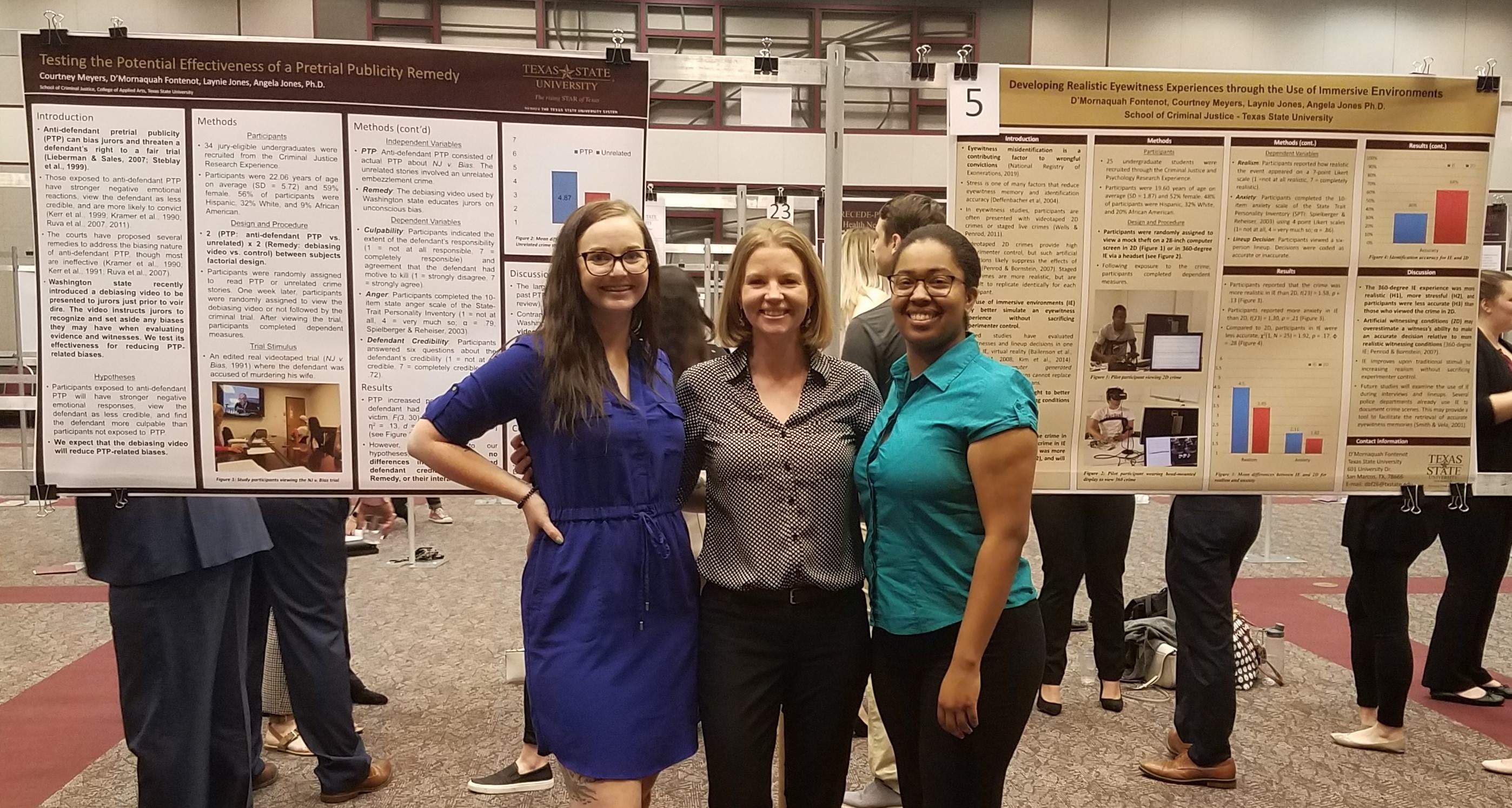
Undergraduate Research Conference
Lab members Courtney Meyers and D’Mornaquah Fontenot presenting research on eyewitnesses and pretrial publicity at the 2019 Undergraduate Research Conference. D’Mornaquah’s poster won Honorable Mention.
Eyewitness Identification
Eyewitness misidentification is one of the leading contributing factors to wrongful convictions. These wrongful convictions have spurred one of the most prolific areas of applied memory research. Our lab is currently evaluating the use of technology to improve the ecological validity of eyewitness stimuli and the development of lineups. We are currently testing how immersive environments affect eyewitness memory.
Facial recognition is also a rapidly developing technology being employed by various police departments across the country. Such technology can inform the construction of lineups that are later administered to eyewitnesses. One method for reducing the errors made by eyewitnesses in criminal cases involves constructing lineups that do not unduly bias witnesses towards choosing the suspect. Using actual mugshots from the Florida Offender Database, we are currently testing how facial recognition technology affects eyewitness lineup decisions, especially when lineups include highly similar fillers.
